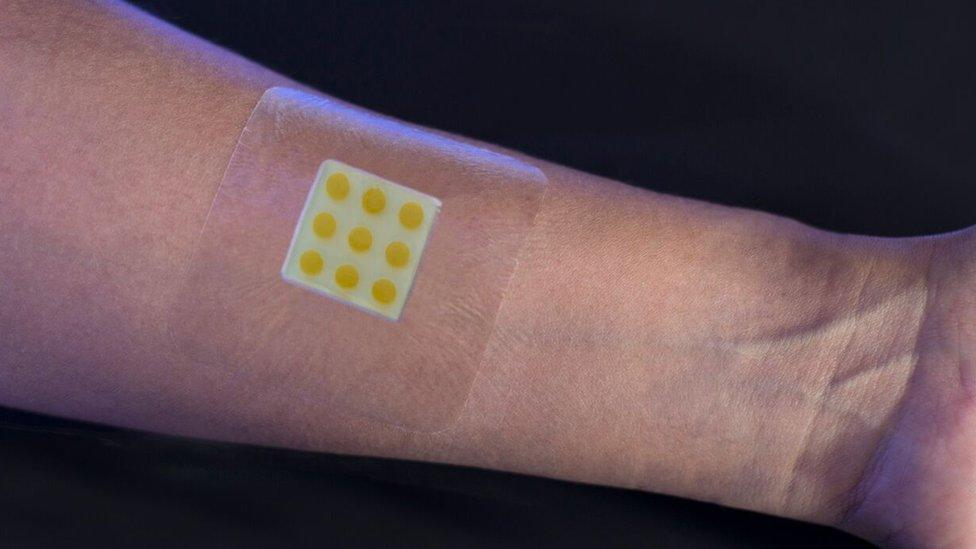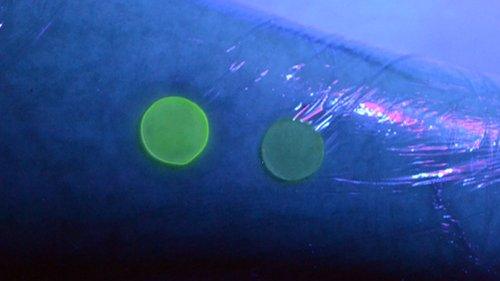Colour-changing dressing 'fights antibiotic resistance'
- Published

The colour-changing dressing uses fluorescent dye to detect bacteria toxins in a wound
A medical dressing that changes colour when it detects infection could cut the unnecessary use of antibiotics, say scientists at Bath University.
It works by releasing fluorescent dye from tiny capsules when toxins are given out by bacteria in a wound.
This allows doctors to identify bacterial infections and treat them more quickly, particularly in children with burns.
Researchers said it could help to save lives.
Children with burn wounds are particularly susceptible to bacterial infections because of their immature immune systems.
These infections can slow the healing of wounds, leading to longer stays in hospital and sometimes permanent scarring. In severe cases, infections can kill.
Major health concern
Doctors find it very difficult to diagnose infections quickly and easily without removing the dressing, which can be painful and create more scarring.
Because of this, antibiotics are often prescribed as a precaution before the infection is confirmed.
However, treatment with antibiotics when there is no infection can lead to bacteria becoming resistant to antibiotics - and antibiotic resistance is a major health concern.
Dr Toby Jenkins, reader in biophysical chemistry at Bath, leading the project, said "it could really help to save lives."
The team has been awarded almost £1m by the Medical Research Council to test the responsiveness of the prototype dressing to samples taken from the wounds of burns victims.
- Published25 March 2013

- Published6 April 2015
